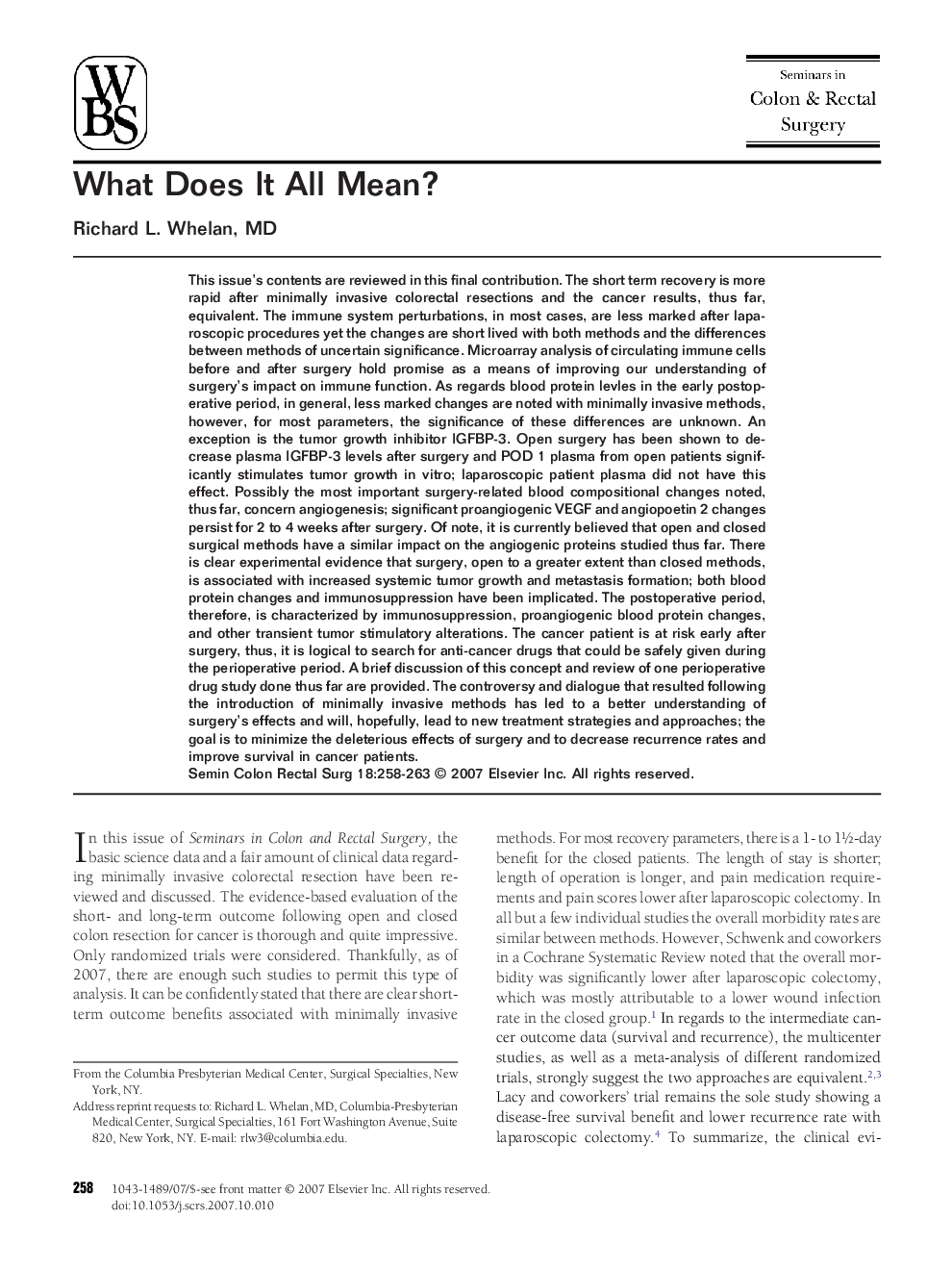| Article ID | Journal | Published Year | Pages | File Type |
|---|---|---|---|---|
| 3319670 | Seminars in Colon and Rectal Surgery | 2007 | 6 Pages |
Abstract
This issue's contents are reviewed in this final contribution. The short term recovery is more rapid after minimally invasive colorectal resections and the cancer results, thus far, equivalent. The immune system perturbations, in most cases, are less marked after laparoscopic procedures yet the changes are short lived with both methods and the differences between methods of uncertain significance. Microarray analysis of circulating immune cells before and after surgery hold promise as a means of improving our understanding of surgery's impact on immune function. As regards blood protein levles in the early postoperative period, in general, less marked changes are noted with minimally invasive methods, however, for most parameters, the significance of these differences are unknown. An exception is the tumor growth inhibitor IGFBP-3. Open surgery has been shown to decrease plasma IGFBP-3 levels after surgery and POD 1 plasma from open patients significantly stimulates tumor growth in vitro; laparoscopic patient plasma did not have this effect. Possibly the most important surgery-related blood compositional changes noted, thus far, concern angiogenesis; significant proangiogenic VEGF and angiopoetin 2 changes persist for 2 to 4 weeks after surgery. Of note, it is currently believed that open and closed surgical methods have a similar impact on the angiogenic proteins studied thus far. There is clear experimental evidence that surgery, open to a greater extent than closed methods, is associated with increased systemic tumor growth and metastasis formation; both blood protein changes and immunosuppression have been implicated. The postoperative period, therefore, is characterized by immunosuppression, proangiogenic blood protein changes, and other transient tumor stimulatory alterations. The cancer patient is at risk early after surgery, thus, it is logical to search for anti-cancer drugs that could be safely given during the perioperative period. A brief discussion of this concept and review of one perioperative drug study done thus far are provided. The controversy and dialogue that resulted following the introduction of minimally invasive methods has led to a better understanding of surgery's effects and will, hopefully, lead to new treatment strategies and approaches; the goal is to minimize the deleterious effects of surgery and to decrease recurrence rates and improve survival in cancer patients.
Related Topics
Health Sciences
Medicine and Dentistry
Gastroenterology
Authors
Richard L. MD,
